Proletariat Quotes
Quotes tagged as "proletariat"
Showing 1-30 of 55
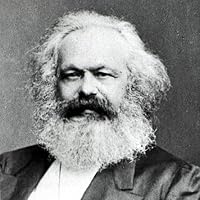
“Let the ruling classes tremble at a Communistic revolution. The proletarians have nothing to lose but their chains. They have a world to win.
Workingmen of all countries unite!”
― The Communist Manifesto
Workingmen of all countries unite!”
― The Communist Manifesto

“And here it becomes evident that the bourgeoisie is unfit any longer to be the ruling class in society and to impose its conditions of existence upon society as an over-riding law. It is unfit to rule because it is incompetent to assure an existence to its slave within his slavery, because it cannot help letting him sink into such a state that it has to feed him instead of being fed by him. Society can no longer live under this bourgeoisie; in other words, its existence is no longer compatible with society.
The essential condition for the existence, and for the sway of the bourgeois class, is the formation and augmentation of capital; the condition for capital is wage-labor. Wage-labor rests exclusively on competition between the laborers. The advance of industry, whose involuntary promoter is the bourgeoisie, replaces the isolation of the laborers, due to competition, by their revolutionary combination, due to association. The development of modern industry, therefore, cuts from under its feet the very foundation on which the bourgeoisie produces and appropriates products. What the bourgeoisie therefore produces, above all, are its own grave diggers. Its fall and the victory of the proletariat are equally inevitable.”
― The Communist Manifesto
The essential condition for the existence, and for the sway of the bourgeois class, is the formation and augmentation of capital; the condition for capital is wage-labor. Wage-labor rests exclusively on competition between the laborers. The advance of industry, whose involuntary promoter is the bourgeoisie, replaces the isolation of the laborers, due to competition, by their revolutionary combination, due to association. The development of modern industry, therefore, cuts from under its feet the very foundation on which the bourgeoisie produces and appropriates products. What the bourgeoisie therefore produces, above all, are its own grave diggers. Its fall and the victory of the proletariat are equally inevitable.”
― The Communist Manifesto

“When, in the course of development, class distinctions have disappeared and all production has been concentrated in the hands of a vast association of the whole nation, the public power will lose its political character. Political power, properly so called, is merely the organized power of one class for oppressing another. If the proletariat during its contest with the bourgeoisie is compelled, by the force of circumstances, to organize itself as a class, if, by means of a revolution, it makes itself the ruling class, and, as such, sweeps away by force the old conditions of production then it will, along with these conditions, have swept away the conditions for the existence of class antagonisms, and of classes generally, and will thereby have abolished its own supremacy as a class.
In place of the old bourgeois society with its classes and class antagonisms we shall have an association in which the free development of each is the condition for the free development of all.”
― The Communist Manifesto
In place of the old bourgeois society with its classes and class antagonisms we shall have an association in which the free development of each is the condition for the free development of all.”
― The Communist Manifesto
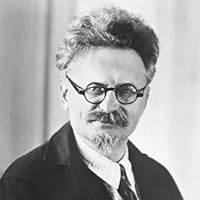
“Workers – men and women – of all countries, place yourselves under the banner of the Fourth International. It is the banner of your approaching victory!”
― The Transitional Program for Socialist Revolution
― The Transitional Program for Socialist Revolution
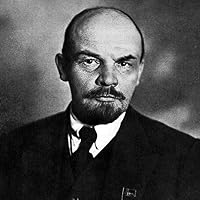
“Those who live by the labor of others are taught by religion to practice charity while on earth, thus offering them a very cheap way of justifying their entire existence as exploiters and selling them at a moderate price tickets to well-being in heaven. Religion is opium for the people. Religion is a sort of spiritual booze, in which the slaves of capital drown their human image, their demand for a life more or less worthy of man.”
― Socialism and religion
― Socialism and religion

“You had to have these peasant leaders quickly in this sort of war and a real peasant leader might be a little too much like Pablo. You couldn't wait for the real Peasant Leader to arrive and he might have too many peasant characteristics when he did. So you had to manifacture one. At that, from what he had seen of Campesino, with his black beard, his thick negroid lips, and his feverish, staring eyes, he thought he might give almost as much trouble as a real peasant leader. The last time he had seen him he seemed to have gotten to believe his own publicity and think he was a peasant.”
― For Whom the Bell Tolls
― For Whom the Bell Tolls
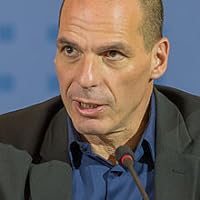
“What does it mean to be a proletarian, really? [...] It means you are a cog in a process of production that relies on what you do and think, while excluding you from being anything but its product. It means the end of sovereignty, the conversion of all experiential value to exchange value, the final defeat of autonomy.”
― Another Now: Dispatches from an Alternative Present
― Another Now: Dispatches from an Alternative Present

“Die Proletarier dieser Welt haben nichts zu verlieren als ihre Ketten. Sie haben eine Welt zu gewinnen. Proletarier aller Länder, vereinigt euch!”
―
―
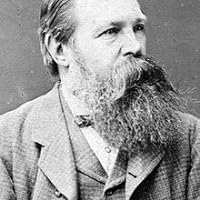
“I wanted more than a mere abstract knowledge of my subject, I wanted to see you in your own homes, to observe you in your everyday life, to chat with you on your condition and grievances, to witness your struggles against the social and political power of your oppressors.”
― The Condition of the Working Class in England
― The Condition of the Working Class in England

“Children were idealized by Wordsworth and un-idealized by Freud. Marx was the Wordsworth of the proletariat; its Freud is still to come.”
― Unpopular Essays
― Unpopular Essays
“Flog them, hang them, drown them like rats. It won’t change the facts: we are the ones who poured our sweat and souls into your looms. We have rights to expect a little loyalty.”
― The Factory Witches of Lowell
― The Factory Witches of Lowell
“We were crushed’ said Judith; ‘for lack of resolution more than lack of numbers. A strike is nothing if a worker may pledge herself to it today and return to the factory
tomorrow. So we gather here; tonight, to unite and entwine our fate.”
― The Factory Witches of Lowell
tomorrow. So we gather here; tonight, to unite and entwine our fate.”
― The Factory Witches of Lowell
“Referring to Marx's thesis the the proletariat had no fatherland, he said that the epoch of national wars was over, and that the current struggle was an imperialist war.”
― Lenin
― Lenin
“Among those who trimmed their political principles after the outbreak of the war was Katusky, who particularly aroused Lenin's ire.
'I hate Katusky and at the moment I despise him more than anyone [he wrote to Shlyapnikov in October]: a beastly, rotten, smug, hypocrite. Oh no, - they say- nothing has happened, no principles have been violated; every one was right in protecting the Fatherland; internationalism (kindly note) consists in the workers of all countries shooting at each other in the name of the "Defence of the Fatherland".”
― Lenin
'I hate Katusky and at the moment I despise him more than anyone [he wrote to Shlyapnikov in October]: a beastly, rotten, smug, hypocrite. Oh no, - they say- nothing has happened, no principles have been violated; every one was right in protecting the Fatherland; internationalism (kindly note) consists in the workers of all countries shooting at each other in the name of the "Defence of the Fatherland".”
― Lenin

“What predominates in Italy is that destitute proletariat to which Marx and Engels, and, following them, the whole school of German social democrats, refer with the utmost contempt. They do so completely in vain, because here, and here alone, not in the bourgeois stratum of workers, is to be found the mind as well as the might of the future social revolution.”
― Statism and Anarchy
― Statism and Anarchy

“If the proletariat is to be the ruling class, it may be asked, then whom will it rule?”
― Statism and Anarchy
― Statism and Anarchy

“an unbearably tense and disorienting paradox that underscores everyday life in a working-class environment—on the one hand it’s an abrasive and in-your-face world, yet, at the same time, much of it seems extrinsic and is perpetually uninvolving. One is relentlessly overwhelmed and understimulated all at the same time.”
― Checkout 19
― Checkout 19
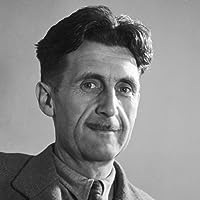
“No word in the B vocabulary was ideologically neutral.
A great many were euphemisms. Such words, for instance,
as JOYCAMP (forced-labour camp) or MINIPAX Minis-
try of Peace, i.e. Ministry of War) meant almost the exact
opposite of what they appeared to mean. Some words, on
the other hand, displayed a frank and contemptuous un-
derstanding of the real nature of Oceanic society. An
example was PROLEFEED, meaning the rubbishy enter-
tainment and spurious news which the Party handed out
to the masses.”
― 1984
A great many were euphemisms. Such words, for instance,
as JOYCAMP (forced-labour camp) or MINIPAX Minis-
try of Peace, i.e. Ministry of War) meant almost the exact
opposite of what they appeared to mean. Some words, on
the other hand, displayed a frank and contemptuous un-
derstanding of the real nature of Oceanic society. An
example was PROLEFEED, meaning the rubbishy enter-
tainment and spurious news which the Party handed out
to the masses.”
― 1984

“they shower water cannons
but they do not know
you’re a seed buried in the soil
ready to geminate and penetrate
your head out in this turmoil.”
― Foxfire - A book of poems
but they do not know
you’re a seed buried in the soil
ready to geminate and penetrate
your head out in this turmoil.”
― Foxfire - A book of poems
“The proletariat should not be viewed as a monolithic entity represented by a single party (a la the various currents of Marxism) but rather as a contested body whose unity is contingent on the freedom of its different parts to fight for their interests within it. The fight for women’s liberation or the recognition of the rights of various ethnic groups then are not battles to be put off until after the proletariat seizes power globally, but are necessary precursors to that seizure of power that clarify the revolutionary orientation of the proletariat.”
― The Historical Failure of Anarchism: Implications for the Future of the Revolutionary Project
― The Historical Failure of Anarchism: Implications for the Future of the Revolutionary Project

“El desempleo, para el que no había seguro, era el mal más temido. Ello explicaba que esos obreros, que en la vida cotidiana eran siempre los más tolerantes de los hombres, fuesen siempre xenófobos en cuestiones de trabajo, acusando sucesivamente a los italianos, los españoles, los judíos, los árabes y finalmente la tierra entera, de robarles su empleo -actitud sin duda desconcertante para los intelectuales que escriben sobre la teoría del proletariado, y sin embargo muy humana y muy excusable-. Lo que esos nacionalistas inesperados disputaban a las otras nacionalidades no eran el dominio del mundo o los privilegios del dinero y el ocio, sino el privilegio de la servidumbre.”
―
―
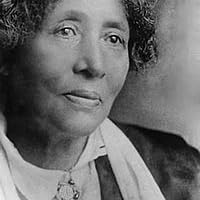
“when the proletariat, failing to see the justice of this bourgeois economy, begins to murmur, the policeman’s club is called into active service.”
―
―

“The answer to the question of the purpose of the theory of value is quite different for the bourgeoisie and the proletariat. The bourgeoisie asks about the prices of commodities, the proletariat about the organisation of society.”
―
―

“They spoke through no words. They felt the man's pain. It was an ethereal dialogue taking place between two proletariats.”
― Tajrish
― Tajrish
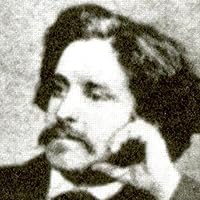
“Every class which struggles for its enfranchisement seeks to realize a social ideal, in complete opposition with that of the ruling class.”
― The Right to Be Lazy
― The Right to Be Lazy

“The oppressed class, although the ideology of the oppressing class is imposed upon it, nevertheless elaborates religious, ethical and political ideas corresponding to its condition of life; vague and secret at first, they gain in precision and force in proportion as the oppressed class takes definite form and acquires the consciousness of its social utility and of its strength; and the hour of its emancipation is near when its conception of nature and of society opposes itself openly and boldly to that of the ruling class.”
― The Right to Be Lazy
― The Right to Be Lazy

“The militant socialists, following the example of the encyclopedists of the eighteenth century, have to make a merciless criticism of the economic, political, historical, philosophical, moral and religious ideas of the capitalist class in order to prepare in all spheres of thought the triumph of the new ideology which the proletariat introduces into the world.”
― The Right to Be Lazy
― The Right to Be Lazy

“The Marxist critique of the postulates of bourgeois democracy is in fact based on the definition of the class character of modern society. It demonstrates the theoretical inconsistency and the practical deception of a system which pretends to reconcile political equality with the division of society into social classes determined by the nature of the mode of production.”
― The Democratic Principle
― The Democratic Principle

“Один зі способів зрозуміти нещодавню історію — уявити собі чергу по каву: уранці ви йдете до «Старбаксу», відчайдушно потребуючи чашки звичайної кави, перш ніж почнете класти цеглу, а тим часом молода особа в костюмі для йоги від Lulu Lemon влізає перед вами без черги і замовляє лате без піни зі знежиреним мигдалевим молоком — на двадцять осіб. Потім ця людина, яка влізла без черги, обертається до вас і починає читати вам лекцію про те, який ви сексист, агресивний «расист, котрому, перш ніж висловлюватися, варто згадати про свої привілеї.”
― The Aristocracy of Talent: How Meritocracy Made the Modern World
― The Aristocracy of Talent: How Meritocracy Made the Modern World
All Quotes
|
My Quotes
|
Add A Quote
Browse By Tag
- Love Quotes 98.5k
- Life Quotes 76.5k
- Inspirational Quotes 73.5k
- Humor Quotes 44k
- Philosophy Quotes 30k
- Inspirational Quotes Quotes 27k
- God Quotes 26.5k
- Truth Quotes 24k
- Wisdom Quotes 24k
- Romance Quotes 23.5k
- Poetry Quotes 22.5k
- Death Quotes 20k
- Life Lessons Quotes 20k
- Happiness Quotes 19k
- Quotes Quotes 18k
- Hope Quotes 18k
- Faith Quotes 18k
- Inspiration Quotes 17k
- Spirituality Quotes 15k
- Religion Quotes 15k
- Motivational Quotes 15k
- Writing Quotes 15k
- Relationships Quotes 14.5k
- Life Quotes Quotes 14.5k
- Love Quotes Quotes 14k
- Success Quotes 13.5k
- Time Quotes 12.5k
- Motivation Quotes 12.5k
- Science Quotes 11.5k
- Motivational Quotes Quotes 11.5k


